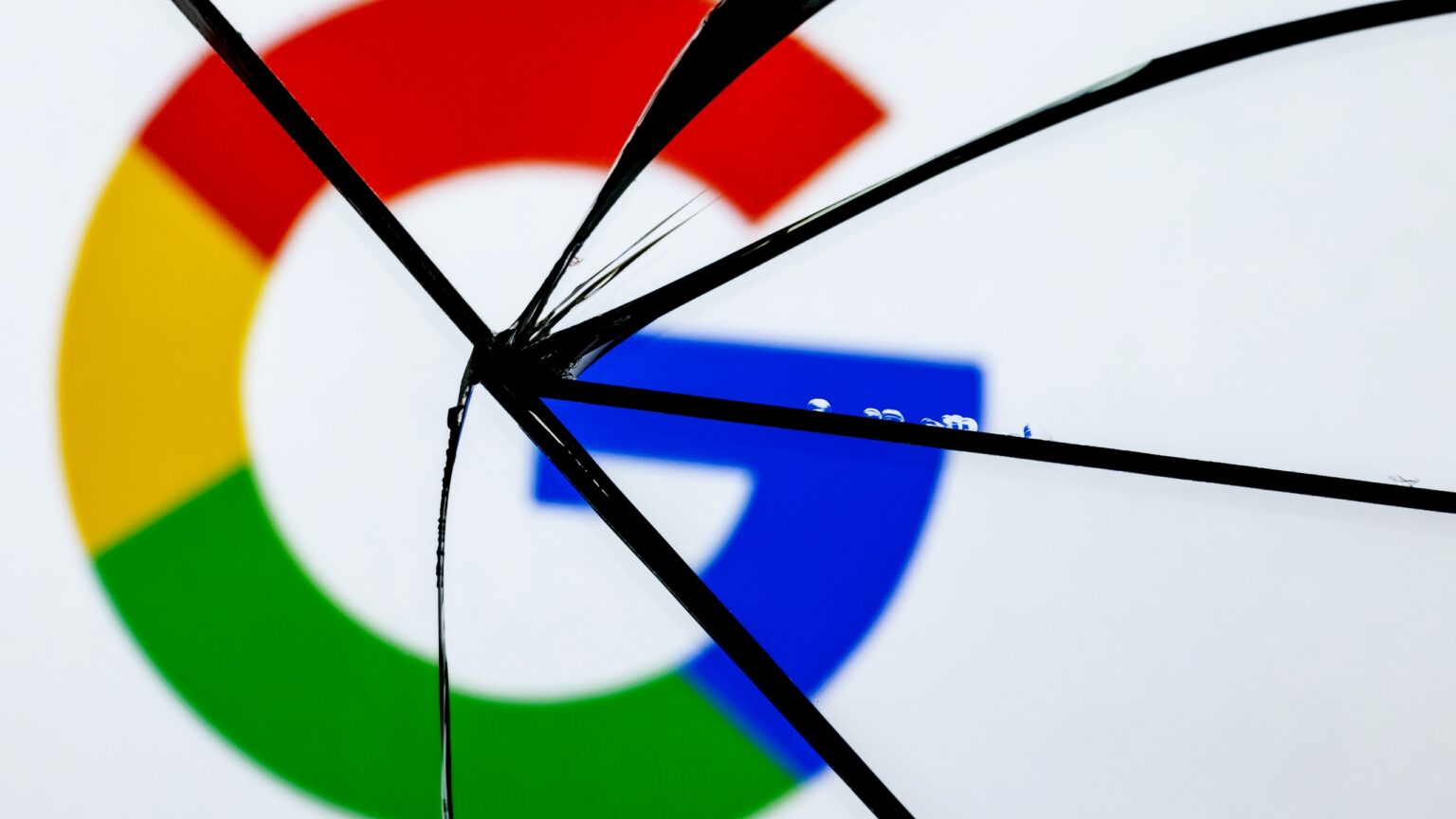The U.S. Department of Justice (DOJ) and eight states have filed charges against Google, accusing the company of exerting monopoly power over the buying and selling of online advertisements (ads).
U.S. Attorney General Merrick Garland filed the 155-page complaint in a Virginia federal court on Jan. 24. He alleged that Google “used anticompetitive, exclusionary and unlawful conduct to eliminate or severely diminish any threat to its dominance over digital ads technologies.”
Also read: How Google Is Joining the Text-to-Image AI Race
The lawsuit wants the court to press Google to break up part of its advertising business. Website publishers in the U.S. sell over $5 trillion digital display advertisements on the open web each year, or about $13 billion ads per day.
Google gets much of its revenue from online ads. The tech behemoth dominates the search and digital ad business. According to market research firm Insider Intelligence, Google’s share of total online advertising income in the U.S. fell from 37% in 2016 to 29% in 2022.
Breaking up Google
The complaint focuses on the way Google controls the tech for online ads that get placed on websites via its auction process. It accuses the firm of forcing publishers and advertisers to use its tools, corrupting legitimate competition, and manipulating auction outcomes.
“We alleged that Google’s anti-competitive conduct extends to three significant elements of the digital ad buying process,” said Garland.
“First, Google controls that technology used by nearly every major website publisher to offer advertising space for sale. Second, Google controls the leading tool used by advertisers to buy that advertising space. And third, Google controls the largest ad exchange that matches publishers and advertisers together each time that ad space is sold.”
Due to Google’s conduct, said Garland, “website creators earn less and advertisers pay more.” The U.S. goverment alleges that, on average, Google kept at least $0.30 – and sometimes far more – of each dollar flowing from advertisers to website publishers via its ad tech tools.
He cited Google’s own internal documents in which the company “conceded that [it] would earn far less in a competitive market.” Garland intends to “halt Google’s anti-competitive scheme and unwind [its] monopolistic grip on the market.”
To restore competition, the Justice Department wants at the minimum the court to compel Google to dispose of its Ad Manager suite, including both Google’s publisher ad server called DoubleClick for Publishers, or DFP, and its advertising exchange AdX.
Garland revealed that the U.S. government, as an advertiser, has been affected by Google’s behavior. “Monopolies threaten the free and fair markets upon which our economy is based,” he said, adding:
“They stifle innovation. They hurt producers and workers, and they increase costs for consumers. Today’s complaint is only the latest example of the department’s work to challenge antitrust violations that undermine competition and harm the American people.”
Google denies wrongdoing
Google denied any wrongdoing, and instead accused the Department of Justice of “doubling down on a flawed argument”. In a blog post Dan Taylor, vice president of global ads said the complaint would “reverse years of innovation, harming the broader advertising sector”.
“Today’s lawsuit from the DOJ attempts to pick winners and losers…” a Google spokesperson further told the BBC. “It largely duplicates an unfounded lawsuit by the Texas Attorney General, much of which was recently dismissed by a federal court.”
“DOJ is doubling down on a flawed argument that would slow innovation, raise advertising fees, and make it harder for thousands of small businesses and publishers to grow,” added the person.
The latest lawsuit builds on a 2020 Trump-era action launched by the Justice Department and 11 states against Google over its dominance in search ad business. The case is slated for trial in September 2023, but the DOJ maintains it is separate from the new complaint.
US broke up monopolies in the past
The U.S government successfully challenged the AT&T telecom monopoly in 1974, winning the case eight years later in 1982, according to reports. However, there are also examples of lawsuits seeking the same kind of remedy which have also failed.
While the Biden administration committed to enforcing antitrust laws in a 2021 Executive Order, it failed to prevent the acquisition of Imperial Sugar by competitor U.S. Sugar. It also could not stop the UnitedHealth Group merger with Change HealthCare.
As MetaNews previously reported, gamers are trying to to prevent Microsoft’s takeover of Activision Blizzard. And so is the United States’ Federal Trade Commission. The regulator is also attempting to stop Meta, formerly Facebook, from buying virtual reality (VR) company Within Unlimited.
Veteran tech writer and analyst Jessica E. Lessin believes the latest lawsuit against Google “will take years and years to sort out,” as is usually with all cases involving tech regulation.
“And while I tend to think Google is likely to negotiate some concessions to avoid splitting off the business, I find this one tough to read and I think many outcomes are possible. When it comes to this area of display advertising, there are very few other games in town,” she said.
Shares of Alphabet Inc., the parent company of Google, fell more than 3% to $96.10 as of writing. Over the past 52 weeks, the stock touched a high of $152.10 and a low of $83.45, according to Yahoo Finance.









 and then
and then